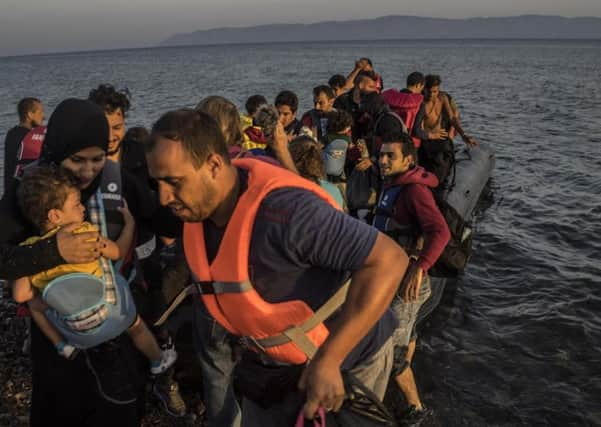John Redwood: Refugees, the EU and why UK must retain control of borders


Indeed, it is fundamental to a sovereign people and a sovereign Parliament that one of the decisions that we should be able to make for ourselves is who we invite in and on what terms we invite them in to become citizens of our country.
It is a great privilege to be a citizen of our country. It brings all sorts of benefits, as well as responsibilities. Surely that is a decision that this Parliament should wish to make, with the Government offering guidance and leadership, to show that we are in control on this fundamental point.
Advertisement
Hide AdAdvertisement
Hide AdEven though we have opted out of this proposal for allocating refugees and other recent arrivals in the European Union under a quota system, what the Schengen countries do at their common external frontier still matters to the United Kingdom. While we remain under the current European Union treaties, we have to accept the freedom of movement rules.
We are also interested in the policy of the Schengen countries, which we have opted out of, because the British Government have none the less agreed to spend money and offer resource to police the common external frontier of the Schengen area. In particular, we have committed resources to tackling some part of the desperate problems that the EU migration policy has caused in the Mediterranean, where all too many people commit themselves to hazardous and expensive journeys and then need to be rescued by the Royal Navy and other naval contingents.
It is a disgrace that our rich and relatively successful continent is facing this huge crisis, with many refugees and economic migrants arriving, and the system is unable to cope with them. We have to ask why that is? Given that we do not wish to see people undertaking such hazardous journeys, and that we do not feel that the way in which European Union policy is impacting on those people is decent, we need to influence our partners in the European Union to do something better.
The Government is right that the correct thing to do for refugees is to work with the United Nations and our other partners to make sure that there is a safe place of refuge near to the place they fled from, and be there to talk to them and to consider who would like to come to countries in Europe and elsewhere and decide on what basis we will admit people from those camps.
Advertisement
Hide AdAdvertisement
Hide AdThat is surely the humane way to approach the issue, and it obviates the need for people to undertake extremely hazardous, and often very expensive, journeys.
Only the richest and fittest among those groups can undertake such journeys, only then to discover that the hazards are too great and that they may lose their lives or need rescuing from the Mediterranean. Surely the money that we are spending on picking people out of the Mediterranean could be better spent on an orderly system closer to the place from which people are fleeing, and on helping them to get legal transport to come to the country of their choice once they have been offered that facility?
Such a system would also mean that we could make clearer and better distinctions between economic migrants and genuine refugees. There are, of course, a lot of genuine refugees from a country such as Syria, but different considerations should apply in the way that we respond to a lot of economic migrants who come along at the same time from a range of countries in the Middle East and Africa.
Surely the European Union, with all its powerful and rich countries, could do a better job in coming up with an orderly and sensible way of handing help and assistance to genuine refugees who are being forced out of war-torn areas or countries by civil wars and violence? We must also send a clear message to economic migrants that there is an orderly system, and that they are not welcome if they turn up as illegal migrants.
Advertisement
Hide AdAdvertisement
Hide AdWhen Angela Merkel – perhaps for the best of reasons, both because Germany would like a bigger workforce and because she felt very sorry for these people – suggested that many more migrants should turn up, I fear that that compounded the problem.
Far from being a caring solution, it meant that many thousands more people committed themselves to hazardous journeys, only to find when they arrived that other countries in the European Union did not have the same view as Angela Merkel.
Many people watching these awful tragedies unfold on television will conclude that as an island nation we can – and should – control our own borders. We could do a rather more humane job than the European Union is currently doing, and perhaps for Britain, that is the best answer.
John Redwood is a Conservative MP and former Cabinet minister who spoke in a Commons debate on the relocation of migrants. This is an edited version.